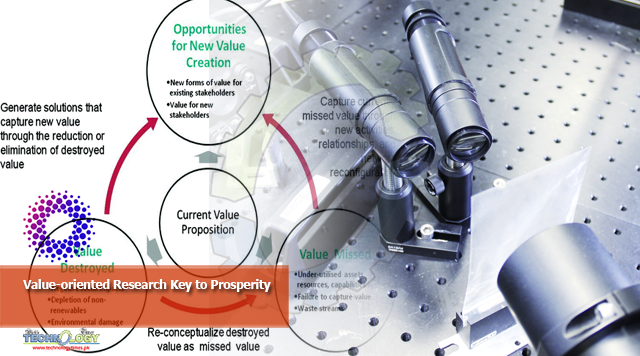Value-oriented Research Key to Prosperity : Muslim scientists are still recognized with significant contribution to science. Muslims were at the peak of science. All the science that provided the seeding to western culture and societies came from Muslim countries, said Dr. Niazi.

Value-Oriented Research Key To Prosperity : He asked what went wrong then, and answered that we lost the link between science and technology because of the sultans. We did not allow the enough freedom, we preferred to be sultans rather than leaders of the society.
This is the exactly what happened for the Muslims’ decline, he observed while addressing a seminar on ‘intellectual property rights for scientists’ organized by COMSTECH.
Bring forward science and scientists from the corner for coming back to higher level of economic growth and innovation, he urged. Scientists are the one who make difference in how a country progresses, how a society develops so there are lot of obligations on scientists, Prof. Dr. Sarfaraz K. Niazi said.
Dr. Niazi mentioned that many OIC or developing countries are very smart in the use of available minimal input resources and getting high value output but not good in producing higher GDP because of the missing factor of entrepreneurship.
Productivity and efficiency do not necessarily always result in better GDP. It requires a covalent bond between the innovation, GDP and entrepreneurship.
The number of patents is one indication of innovation. A patent gives you the economic advantage for taking a product to the market and making a GDP contribution out of it. Patent is not an intellectual exercise it is a business exercise, he highlighted.
The role of patent is to encourage technological innovation, promote competition and investment and to provide information on the latest technical developments and promote technology transfer, he said.
The scientists of OIC countries are no less smart than any other country Europe and US combined. We have to find the missing link and one of the links is to find how do we get them to secure IP specially in those jurisdictions where it matters. He encouraged the countries which are not part of the patent cooperation treaty (PCT) should become as soon as possible.
He said, planning is where the value is, nobody has money or time to waste in research which is not productive, plan to answer, how you will create a value proposition instead of just a proposition. He encouraged the scientists to do research for patenting not just for publishing.
You are a part of global economy, the value you create is a global value, creating value is your moral obligation and responsibility, he reminded. Improving the lives of people living around the world is the moral obligation of scientists.
Islamic countries need a quick revival, scientists should take more practical approach like China, Japan, South Korea which are great examples, he informed.
Dr. Niazi defined IP, patents, trade mark and its types and the method of filing and securing protection in detail. He talked about treaties and conventions, plagiarism and copyright along with the history of patenting in his lecture.
Professor Dr. Sarfaraz K. Niazi, FRSB, FPAMS, FACB, SI, is a patent law practitioner in the US, an entrepreneur, a teacher and researcher. He owns more than 200 US patents, authored over 100 research papers and 60+ major technology books.
He serves on the editorial board of several journals and a fellow of Royal Society, Pakistan Academy of Medical Sciences and American Society of Clinical Biochemistry. In 2013, he received Sitara-e-Imtiaz from the President of Pakistan.
He has hosted a radio show at Voice of America every week for more than seven years. Professor Niazi has been helping the HEC in developing US IP for the Pakistani scientists for more than 15 years.
This seminar was jointly organized by OIC Ministerial Standing Committee on Scientific and Technological Cooperation (COMSTECH), International Center for Chemical and Biological Sciences (ICCBS), Sindh Innovation, Research, and Education Network (SIREN)